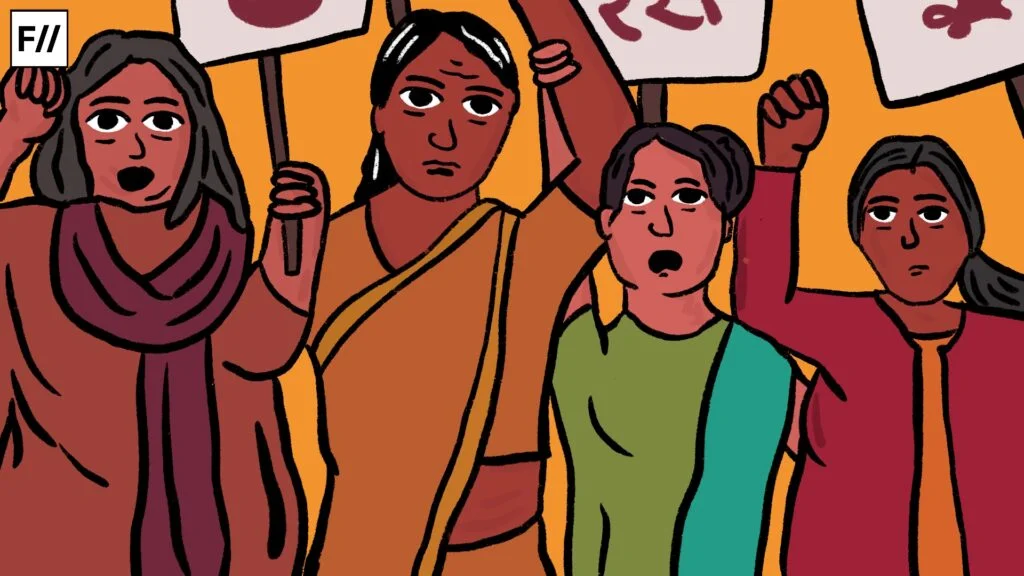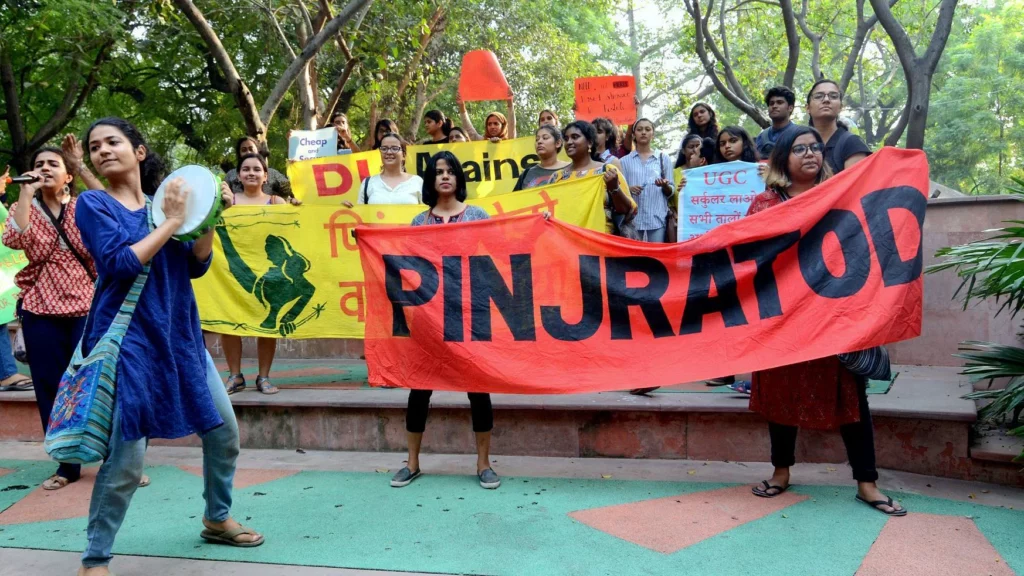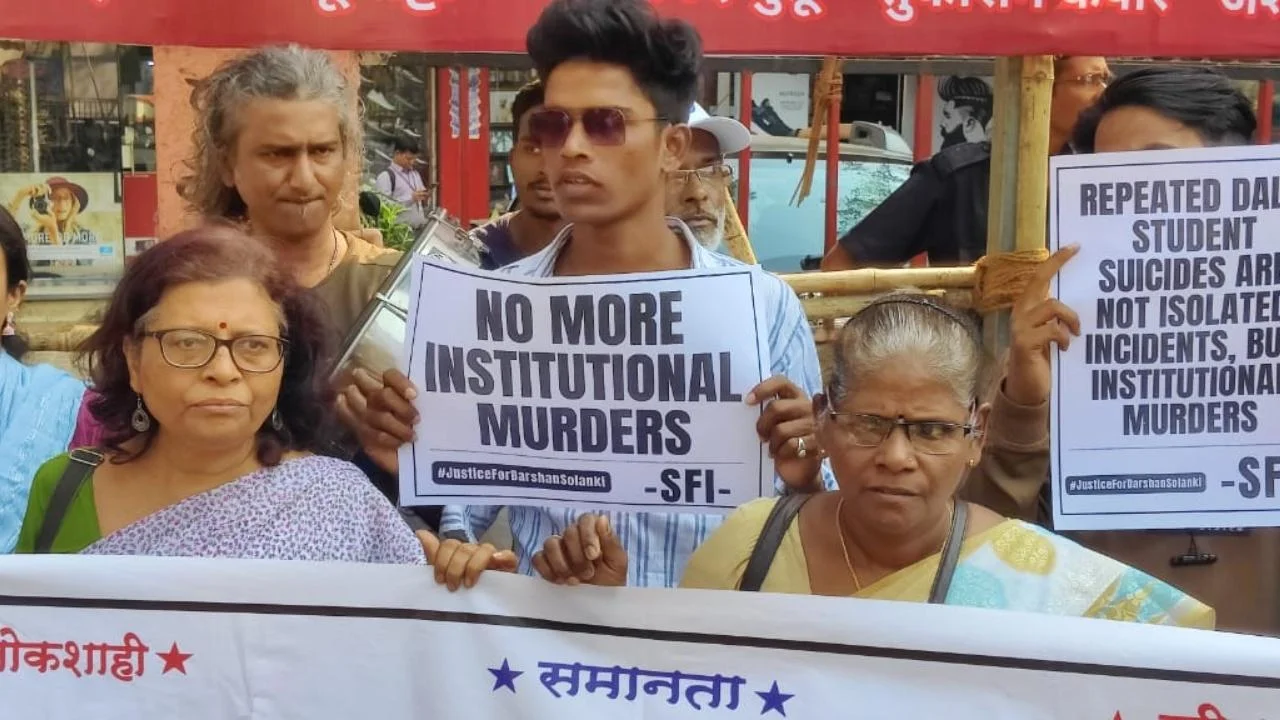In a world striving for gender equality, educational institutions should be at the forefront of this movement, ensuring that all students, regardless of gender, are provided with equal opportunities and freedoms. Unfortunately, this ideal is far from reality at Rajasthan University, where female students recently launched a bold protest against a sudden hike in mess fees and the deeply ingrained gender discrimination reflected in the enforcement of a night curfew on women’s hostels.
These issues highlight the broader struggle against patriarchal norms that still pervade educational institutions in India.
It is necessary to explore the recent events at Rajasthan University, where female students fought against both the hike in mess fees and the night curfew imposed solely on them. These issues highlight the broader struggle against patriarchal norms that still pervade educational institutions in India.
The spark of protest regarding hostel curfew and fee hike
In July, a surge of frustration and anger among the female students of Rajasthan University reached its peak when the administration decided to increase mess fees. This decision, made without consulting the students, came despite the declining quality of food in the hostel mess. Akshita Sharma, an LLM student, captured the general sentiment, stating, ‘The quality of food in the hostel mess is deteriorating, and in such a situation, increasing the fees is completely unreasonable.‘

The protest against this fee hike quickly gained momentum. However, it wasn’t just about the money. The girls were also fighting against the broader issue of gender-based restrictions on campus, particularly the night curfew that confined them to their hostels after 10 PM, while their male counterparts faced no such restrictions.
A stand against gender discrimination: addressing the hostel night curfew
The imposition of a night curfew on female students is not an isolated incident; it is a reflection of the deep-rooted gender bias that exists not just in Rajasthan University, but across many educational institutions in India. The university administration justifies the curfew by claiming it is necessary for the safety of the female students. However, this rationale is nothing more than a cover for the administration’s failure to provide adequate security and infrastructure, such as proper street lighting, which could ensure the safety of all students, regardless of gender.
In a symbolic defiance of this discriminatory rule, the female students chose to start their protest after the curfew hours. Their protest was not only against the fee hike but also a statement against the unjust restrictions placed on them simply because of their gender. The girls gathered voluntarily in large numbers and staged a sit-in at the Vice-Chancellor’s residence, with slogans echoing through the university streets.
The protest soon attracted police attention, and the campus was surrounded by police vehicles and riot control forces.
The protest soon attracted police attention, and the campus was surrounded by police vehicles and riot control forces. However, the police’s attempt to suppress the protest by removing the male supporters backfired, as the girls’ determination only grew stronger. Within a short period, the administration was forced to assure the students that the fee hike would be rolled back.
Attempts to suppress the movement
However, the victory was short-lived. The university administration, unable to digest this defiance of the status quo, quickly moved to suppress the movement. The wardens of the women’s hostels began threatening the participating girls with severe consequences. A girls’ hostel resident Komal Mohanpuria stated, ‘A false case under section 132 of the Bharatiya Nyaya Sanhita, related to obstructing government work, have been filed against us to suppress our demands, following which 12 students from the hostel have received notices to appear at Gandhinagar police station. These tactics were aimed at sending a message that anyone who challenges the system will face severe punishment.’

Moreover, the administration attempted to disrupt the girls’ daily lives by cutting down on the quality and quantity of food provided in the hostel mess. Interestingly, when boys had protested a few months earlier, no such punitive measures were taken against them. This incident highlights the deep-rooted patriarchal mindset of the university, which assumes that challenging the system, leading a revolution, and taking on political leadership are not the work of women.
Mamta Jain, the Chief Warden of the girls’ hostel says, that the university administration has taken action in accordance with the way the girls have violated the rules and regulations. ‘If the girls wanted to protest, they should have done so within the boundaries.’
From a feminist perspective, it is alarming that the administration’s approach to dealing with campus protests is gender-based. In our conservative society, women are often perceived as symbols of beauty, emotional fragility, shyness, and caretaking. It is assumed that protecting them is a collective responsibility of society, and that they are not capable of challenging the system or the administration on their own. This mindset is not only outdated but also harmful, as it reinforces the notion that women are inherently less capable than men.
Hostel curfew vs. freedom
The night curfew imposed on female students is a glaring example of the gender inequality that persists in educational institutions. A survey conducted by students of the Peace and Conflict Studies paper in the university’s Department of Political Science revealed that imposing a night curfew on women’s hostels is a form of violence. The survey highlighted that these restrictions are a blatant violation of the fundamental rights guaranteed under Articles 14 and 15 of the Constitution, which promise equality before the law and prohibit discrimination on the grounds of gender.
Female students allege that the university administration enforces strict rules only on them, while no such restrictions apply to the boys.
Female students allege that the university administration enforces strict rules only on them, while no such restrictions apply to the boys. Just like prisoners, hundreds of girls in Rajasthan University’s hostels have all their freedoms curtailed between 10 PM and 5:30 AM every day. In contrast, boys’ hostels have no such time limits; they can come and go as they please.

The administration justifies these restrictions by claiming that their primary responsibility is to keep the girls safe and prevent any untoward incidents. However, this reasoning is essentially a cover for their inability to maintain proper street lighting and adequate security personnel on campus. This mindset blames the girls for any incidents that may occur and seeks to restrict their activities as a solution. It is also based on the flawed belief that danger only exists during certain hours of the night and under specific circumstances.
PhD scholar Diksha Bairwa states, ‘The campus belongs as much to women as it does to men, and imposing restrictions on us based solely on our gender is grossly unjust. Despite being in Rajasthan’s largest educational institution, women feel confined and restricted, where instead of ensuring safety, the administration begins to dictate our lives.’
Looking ahead
While women’s access to higher education has increased in recent years, they still face gender inequality on university campuses. The protest at Rajasthan University is a stark reminder that the fight for gender equality is far from over. Despite witnessing gender discrimination every day, we often choose to ignore it. Gender Studies student Abhisek Sharma has pointed out that there is a lack of awareness among the student community about the meaning and behaviour of gender bias and harassment.
The time has come to break down the barriers and restrictions imposed on girls and ensure equal access to basic facilities for everyone. If the fees are the same, the facilities and opportunities should be the same as well. Educational institutions must take a proactive role in addressing gender discrimination on their campuses. This includes not only removing discriminatory rules and regulations but also fostering a culture of equality and respect for all students, regardless of gender.
Former Director of the Dr. Ambedkar Study Center, Dr. Suman Maurya, believes that ‘addressing gender biases on campus requires a holistic approach that includes revisiting outdated policies like hostel curfew timing. By creating inclusive environments and ensuring equal freedom for all students, we can foster a culture of respect and safety, where women are empowered, not restricted, by institutional rules.’

In conclusion, the fight of the university girls against the night curfew and mess fee hike at Rajasthan University is more than just a protest; it is a movement against the systemic gender discrimination that still plagues our educational institutions. The courage and determination shown by these girls serve as an inspiration for all students to stand up against injustice and fight for their rights. It is time for educational institutions to recognise the importance of gender equality and take concrete steps to ensure that all students, regardless of gender, are treated with the dignity and respect they deserve.





